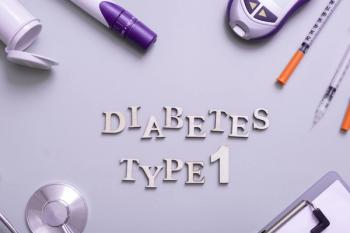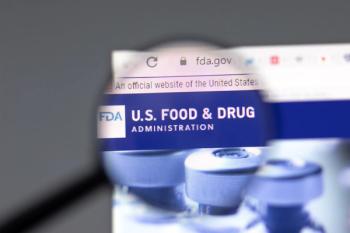
- Drug Topics July 2021
- Volume 165
- Issue 7
Irritable Bowel Syndrome: A Look at the Treatment Landscape
Pharmacists must keep up to date with the latest in irritable bowel syndrome management.
Irritable bowel syndrome (IBS) is a chronic condition that affects the large intestine and can have an impact on patients’ quality of life.1 Treatment typically consists of dietary changes, pharmacotherapy for constipation (IBS-C) and diarrhea (IBS-D), and abdominal pain management.1 Pharmacists can play an integral role in IBS management through medication and dietary education.2
Treatment Overview and Guideline Update
Treatment for IBS includes medications to manage diarrhea such as rifaximin (Xifaxan; Salix Pharmaceuticals) and those for constipation like lubiprostone (Amitiza; Sucampo Pharmaceuticals and Takeda Pharmaceuticals North America, Inc).3 Dietary changes (eg, increasing soluble fiber) can help manage IBS symptoms.3 The American College of Gastroenterology (ACG) recently released updated guidelines for IBS that addressed 25 clinically important questions including new treatment recommendations.3,4 Evidence from a systematic review and meta-analysis reveals that a diet low in fermentable oligosaccharides, disaccharides, monosaccharides, and polyols (FODMAPs) can improve IBS symptoms.3,4 There- fore, a limited trial of a low FODMAP diet is recommended to improve global IBS symptoms.3 Foods that contain FODMAPs include certain grains, vegetables, fruits, and dairy products that can trigger meal-related symptoms in patients with IBS.3 However, there is still a need for more studies evaluating a low 3 FODMAP diet.
Pharmacists can educate patients on the 3 phases of the plan 3:
Phase 1: Substitution of foods with low FODMAP choices
Phase 2: Gradual reintroduction of foods into diet while evaluating symptoms
Phase 3:Personalized diet to avoid foods that trigger symptoms
The new ACG guidelines include a strong recommendation for the use of rifaximin to manage IBS-D symptoms based on clinical trials.3,4 Secretagogues such as plecanatide (Trulance; Synergy Pharmaceuticals) and linaclotide (Linzess; Ironwood and Allergan) now have high rankings in efficacy for IBS-C.3 Plecanatide is a guanylate cyclase-C agonist that was not available several years ago and was not mentioned in the 2018 guideline update.3,4 Linaclotide and plecanatide are both well tolerated, and the most common adverse effect (AE) is diarrhea.3 The serotonin type 4 (5-HT4) agonist tegaserod (Zelnorm; Sloan Pharmaceuticals) was reintroduced into the market in 2019 for IBS-C after it was voluntarily withdrawn in 2007 because of a safety signal of an increased risk of cardiovascular AEs.5 The ACG guidelines recommend the use of tegaserod in women younger than 65 years with < 1 cardiovascular risk factors who have failed secretagogue treatment.3,4 The use of tricyclic antidepressants (TCAs) is now also recommended for the treatment of abdominal pain as they work by acting on norepinephrine and dopaminergic receptors.3 Pharmacists can recommend that patients be started on a low dose of a TCA that should be titrated up gradually to achieve the best symptom management with the least amount of AEs.3 AEs associated with TCAs include dry mouth, dry eyes, urinary retention, constipation, and cardiac arrhythmias.3
Pipeline Drugs for IBS
Arena Pharmaceuticals reported topline results from the phase 2b CAPTIVATE clinical trial (NCT04043455) demonstrating that olorinab, a novel full agonist of the cannabinoid receptor 2, did not meet the primary efficacy end point of statistically significant improvement in the overall average abdominal pain score from baseline to week 12 for patients with IBS-C and IBS-D.6 Olorinab did demonstrate efficacy for moderate to severe pain at the higher dose studied. The company will evaluate possible future options for IBS.6 OrphoMed is investigating ORP-101 in a phase 2 clinical trial (NCT04129619) for IBS-D, and topline results are expected in the second half of 2021.7 ORP-101 has been granted fast track designation by the FDA and has passed the second planned interim analysis in the phase 2 trial.7
References:
1. Irritable bowel syndrome. Mayo Clinic. Updated October 15, 2020. Accessed May 22, 2021.
2. Thong VD, Ngoc Phuc N, Quynh BTH. Effectiveness of educational intervention carried out by clinical pharmacists for the quality of life of patients with irritable bowel syndrome: a randomized controlled trial. JGH Open. 2020; 5(2):242-248. doi:10.1002/jgh3.12477
3. Lacy BE, Pimentel M, Brenner D, et al. ACG clinical guideline: management of irritable bowel syndrome. Am J Gastroenterol. 2021; 116(1):17-44.doi:10.14309/ajg.0000000000001036
4. Lacy BE. Update on irritable bowel syndrome guidelines. Gastroenterology & Hepatology. Updated December 2020. Accessed May 22, 2021..
5. FDA approves the reintroduction of Zelnorm (tegaserod) for irritable bowel syndrome with constipation (IBS-C) in women under 65. News release. BioSpace. April 1, 2019.Accessed May 22, 2021.
6. Arena Pharmaceuticals reports topline results from phase 2b CAPTIVATE clinical trial. News release. Arena Pharmaceuticals. March 2, 2021. Accessed May 22, 2021.
7. OrphoMed’s ORP-101 passes second planned interim analysis in phase 2 study of treatment for IBS-D patients. News release. OrphoMed. April 14, 2021. Accessed May 22, 2021.
Articles in this issue
over 4 years ago
Novel Antifungal Treatment Approved for Vaginal Candidiasisover 4 years ago
What I Learned From 40 Years in Pharmacyover 4 years ago
The Evolution of Pharmacogenomicsover 4 years ago
Naloxone: A Primer for Pharmacistsover 4 years ago
Lessons Learned from the COVID-19 Vaccine Rolloutover 4 years ago
Childhood Vaccines During COVID-19 and BeyondNewsletter
Pharmacy practice is always changing. Stay ahead of the curve with the Drug Topics newsletter and get the latest drug information, industry trends, and patient care tips.























